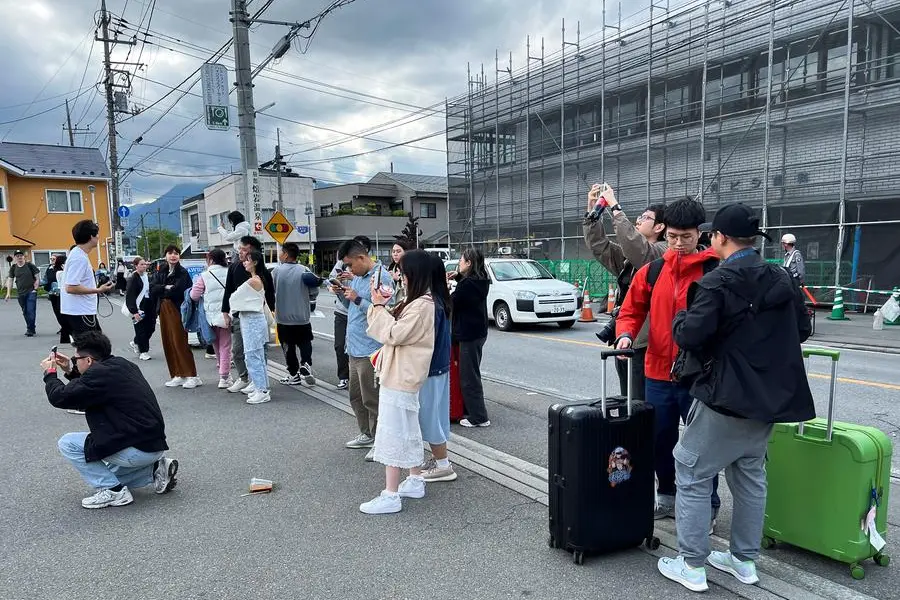PHOTO
Officials in a Japanese town are erecting a 2.5-meter (8.2 ft) high barrier to block a view of Mount Fuji and obstruct a photo spot that has been attracting so many visitors they have become a nuisance for locals.
Visitors have been flocking to Fuji-Kawaguchiko town, about 50 kilometres (31 miles) southwest of Tokyo, to capture the coupling of two symbols of Japan: the majestic, sloping inclines of Mount Fuji and the convenience store, a view which has gone viral on social media.
The crowds have led to complaints of litter, danger to road traffic and illegal parking. The 20-meter-wide black barrier to obscure the mountain is due for completion in the middle of this month.
The barrier is the latest sign of Japan's struggle to accommodate an unprecedented surge in visitors to the country amid a slump in the nation's currency to a 34-year low.
The weak yen has made Japan an irresistible bargain for travellers, which is good news for the economy, but the cost has been frictions with locals and concerns of "overtourism" in major cities and at popular locales.
At the site on Thursday, there were people running into streets, jay-walking and climbing poles to get a better view. At one point, a convenience store worker stormed out of the shop yelling at the tourists to shoo them away.
"I've seen people walk into roads, people using electronic kickboards without following traffic rules and get into accidents. There are many accidents involving foreign tourists recently," said 49-year-old local resident Haruhito Tsuchiya.
Mt. Fuji, a 3,776-metre volcanic mountain worshipped as sacred by the Japanese, has long been a popular site for domestic and foreign visitors. But locals and officials decried a surge in pollution, accidents, and environmental damage during an overcrowded climbing season last summer.
To cope, prefectural officials this year announced a series of hiking restrictions around Mt. Fuji and a new 2,000 yen ($12.83) trail fee. Hotels and resorts around the country are also having trouble keeping up with demand after many workers left the sector during the COVID-19 pandemic. ($1 = 155.8900 yen)
(Reporting by Akiko Okamoto and Mariko Katsumura, writing by Rocky Swift, editing by Alexandra Hudson)





















